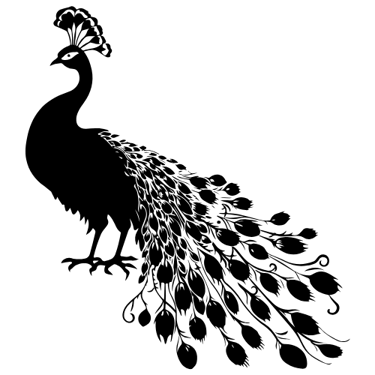

Theologian Cheat Sheet
Paul the Apostle
One of the most influential figures in Christian history, Paul wrote many of the New Testament epistles. His teachings on justification by faith and the nature of the church have shaped Christian theology for centuries.
John the Apostle
The traditional author of the Gospel of John, the three epistles of John, and the book of Revelation, John's writings emphasize the divine nature of Jesus Christ and the importance of love.
Ignatius of Antioch
(c. 35-107 AD): Known for his passionate defense of the apostolic tradition and his martyrdom, Ignatius wrote letters to various churches urging them to remain steadfast in their faith.
Justin Martyr
(c. 100-165 AD): A philosopher and apologist, Justin Martyr wrote dialogues with pagans and Jews, defending Christianity and explaining its teachings. He is considered one of the earliest Christian apologists.
Irenaeus of Lyons
(c. 130-202 AD): Irenaeus was a prominent theologian who wrote extensively against heresies, particularly Gnosticism. He emphasized the importance of apostolic succession and the authority of the Church.
Marcion of Sinope
2nd-century Christian theologian who proposed a radical dualistic view of God and the world. He believed in two distinct gods: a just, wrathful Old Testament God and a benevolent New Testament God, revealed through Jesus Christ. Marcion rejected the Old Testament and much of the New Testament, creating his own canon that included a redacted version of the Gospel of Luke and ten Pauline epistles. His teachings were condemned as heresy by the early church.
Origen of Alexandria
(c. 185-254 AD): A prolific writer and theologian, Origen made significant contributions to biblical interpretation and Christian philosophy. He is known for his allegorical interpretation of Scripture and his defense of the Christian faith against various heresies.
Augustine of Hippo
(354-430 AD): One of the most influential theologians in Western history, Augustine's writings on grace, original sin, and the City of God continue to shape Christian thought.
Arius
4th-century presbyter who challenged the orthodox understanding of the Trinity. He argued that Jesus Christ was not truly God, but a divine being created by God the Father. Arius believed that Jesus was subordinate to the Father and not co-eternal with Him. His teachings led to a major controversy within the early church, culminating in the Council of Nicaea in 325 AD. The council condemned Arianism and affirmed the full divinity of Christ.
John Chrysostom
(c. 347-407 AD): A renowned preacher and theologian, Chrysostom's sermons and homilies are still widely read today. He emphasized the importance of social justice and the need for Christians to live out their faith in their daily lives.
Jerome
(c. 347-420 AD): A scholar and translator, Jerome is best known for his Latin translation of the Bible, the Vulgate, which became the standard Bible of the Western Church for centuries.
Boethius
(c. 480-524 AD): A Roman philosopher and statesman, Boethius wrote influential works on logic, mathematics, and theology. His "Consolation of Philosophy" is a classic work of philosophical and theological reflection.
Symeon the New Theologian
(c. 949-1022) was a Byzantine monk and mystic known for his profound spiritual insights and mystical experiences. He emphasized the importance of direct personal experience of God through prayer and contemplation. Symeon's writings, including his hymns and discourses, offer a rich exploration of the mystical life and the union of the soul with God. He is considered one of the most important figures in Eastern Orthodox mysticism. The Orthodox Church has given the title Great to a small number of Saints (Basil, Anthony, Athanasios, Constantine, Pachomios, Efthymios, Theodosios, to name a few); only three Saints are designated as Theologians (John the Apostle & Evangelist, Gregory, and Simeon the New Theologian); only one, John, as Chrysostom.
Thomas Aquinas
(1225-1274): Often called the "Doctor Angelicus," Aquinas was a Dominican friar and philosopher. His Summa Theologica is one of the most influential works in Western philosophy and theology. He synthesized Aristotelian philosophy with Christian theology, creating a powerful and enduring system of thought.
Duns Scotus
(c. 1265-1308): A Franciscan friar and philosopher, Duns Scotus is known for his contributions to metaphysics and logic. He emphasized the concept of "haecceity," the individual essence of a thing, and argued for the freedom of God's will.
William of Ockham
(c. 1287-1347): A Franciscan friar and philosopher, Ockham is famous for his principle of parsimony, often expressed as "Ockham's razor." He argued that entities should not be multiplied unnecessarily, and his work had a significant impact on the development of scientific method.
Julian of Norwich
(c. 1342-1416): A medieval English mystic and anchoress, Julian is one of the most significant female theologians of the Middle Ages. Her revelations about God's love and mercy, recorded in her book "Revelations of Divine Love," have inspired countless readers over the centuries.
Martin Luther
(1483-1546): A German monk and theologian, Luther's challenge to the authority of the Catholic Church sparked the Protestant Reformation. His doctrine of justification by faith alone, sola fide, has had a profound impact on Western Christianity.
John Calvin
(1509-1564): A French theologian and reformer, Calvin's Institutes of the Christian Religion is one of the most influential theological works ever written. He emphasized the sovereignty of God and the doctrine of predestination.
Ulrich Zwingli
(1484-1531): A Swiss reformer, Zwingli emphasized the authority of Scripture and the simplicity of Christian worship. He differed from Luther on the nature of the Eucharist, advocating for a more symbolic understanding.
Ignatius of Loyola
(1491-1556) was a Spanish Catholic priest and theologian who founded the Society of Jesus (Jesuits). A pivotal figure in the Counter-Reformation, he is known for his spiritual exercises, a method of prayer and meditation that has influenced countless individuals and institutions.
Ignatius's spiritual journey began after a significant injury in battle, which led to a period of reflection and conversion. His experiences inspired him to found the Society of Jesus, a religious order dedicated to education, missionary work, and the defense of the Catholic faith. The Jesuits played a crucial role in the Counter-Reformation and have continued to be a significant force in education, social justice, and intellectual life.
St. Teresa of Ávila
(1515-1582): A Spanish Carmelite nun, Teresa of Ávila was a key figure in the Counter-Reformation. Her writings on mystical experiences and spiritual growth, such as "The Interior Castle," have had a profound impact on Catholic spirituality.
Juana Inés de la Cruz
(1651-1695): A Mexican nun and polymath, Juana Inés de la Cruz was a prominent figure in the Baroque period. She wrote extensively on theology, philosophy, and literature, and her work challenged traditional gender roles and societal expectations. She is considered one of the most important figures in Latin American literature and thought.
John Wesley
(1703-1791): An Anglican cleric and theologian, Wesley founded the Methodist movement, which emphasized personal holiness and social justice. He believed in the importance of a personal experience of salvation and the need for good works.
Jonathan Edwards
(1703-1758): An American Congregationalist minister and philosopher, Edwards is known for his powerful sermons and his emphasis on the sovereignty of God and the importance of spiritual awakening. His work "A Faithful Narrative of the Surprising Work of God" is a classic account of the Great Awakening.
Friedrich Daniel Ernst Schleiermacher
(1768-1834): A German Protestant theologian, Schleiermacher is considered one of the founders of modern Protestant theology. He emphasized the importance of religious experience and the feeling of absolute dependence on God.
Søren Kierkegaard
(1813-1855): A Danish philosopher and theologian, Kierkegaard is often considered the father of existentialism. He emphasized the importance of individual faith and the subjective experience of God.
Karl Barth
(1886-1968): A Swiss Reformed theologian, Barth is one of the most influential theologians of the 20th century. His theology emphasized the sovereignty of God and the importance of divine revelation.
Dietrich Bonhoeffer
(1906-1945): A German Protestant theologian, Bonhoeffer was a key figure in the Confessing Church, which opposed Nazi ideology. His writings on ethics, community, and the cost of discipleship have had a profound impact on modern theology.
Paul Tillich
(1886-1965) A German-American philosopher and theologian, Tillich's work sought to reconcile faith and reason. He developed a systematic theology that addressed the concerns of modern culture.
Dorothy Day
(1897-1980): An American Catholic social activist, journalist, and author, Day founded the Catholic Worker movement. She advocated for social justice, peace, and nonviolence, and her writings have had a significant impact on Catholic social thought.
Jürgen Moltmann
(1926-2024): A German Protestant theologian, Moltmann is known for his theology of hope. He has written extensively on the doctrine of the Holy Spirit, the Trinity, and the kingdom of God.
Thomas J. J. Altizer
(1927-2018): An American theologian known for his radical theology, Altizer argued for the death of God in the modern world. His work has been influential in post-Christian theology and the death-of-God theology movement.
James Cone
(1938-2022): An American theologian, Cone is a leading figure in Black theology. His work focuses on the intersection of theology and social justice, particularly as it relates to the African American experience.
John B. Cobb, Jr.
(1925-2024) An American process theologian, Cobb is known for his work on the intersection of theology and science. He has written extensively on topics such as the nature of God, the environment, and social justice.
Rosemary Radford Ruether
(1926-2022): An American feminist theologian, Ruether is known for her work on liberation theology and feminist theology. She has written extensively on topics such as gender, sexuality, and ecology.
Gustavo Gutiérrez
(1928-2024): A Peruvian Dominican priest and theologian, Gutiérrez is a leading figure in liberation theology. His work focuses on the intersection of theology and social justice, particularly as it relates to the liberation of the poor and oppressed.
Robert W. Jenson
(1930-2019): An American Lutheran theologian, Jenson is known for his work on systematic theology, particularly his emphasis on the doctrine of the Trinity and the importance of liturgical worship.
Stanley Hauerwas
An American theologian and ethicist, Hauerwas is a leading figure in Christian ethics. His work emphasizes the importance of the church as a moral community and the role of the church in shaping a just society.
Catherine Keller
An American feminist theologian, Keller is known for her work on liberation theology and ecofeminism. She has written extensively on the intersection of gender, race, and class in theology.
Photo by Gabriella Clare Marino on Unsplash
Theology Monster
Explore key figures and concepts in theology.
© 2025. All rights reserved.


